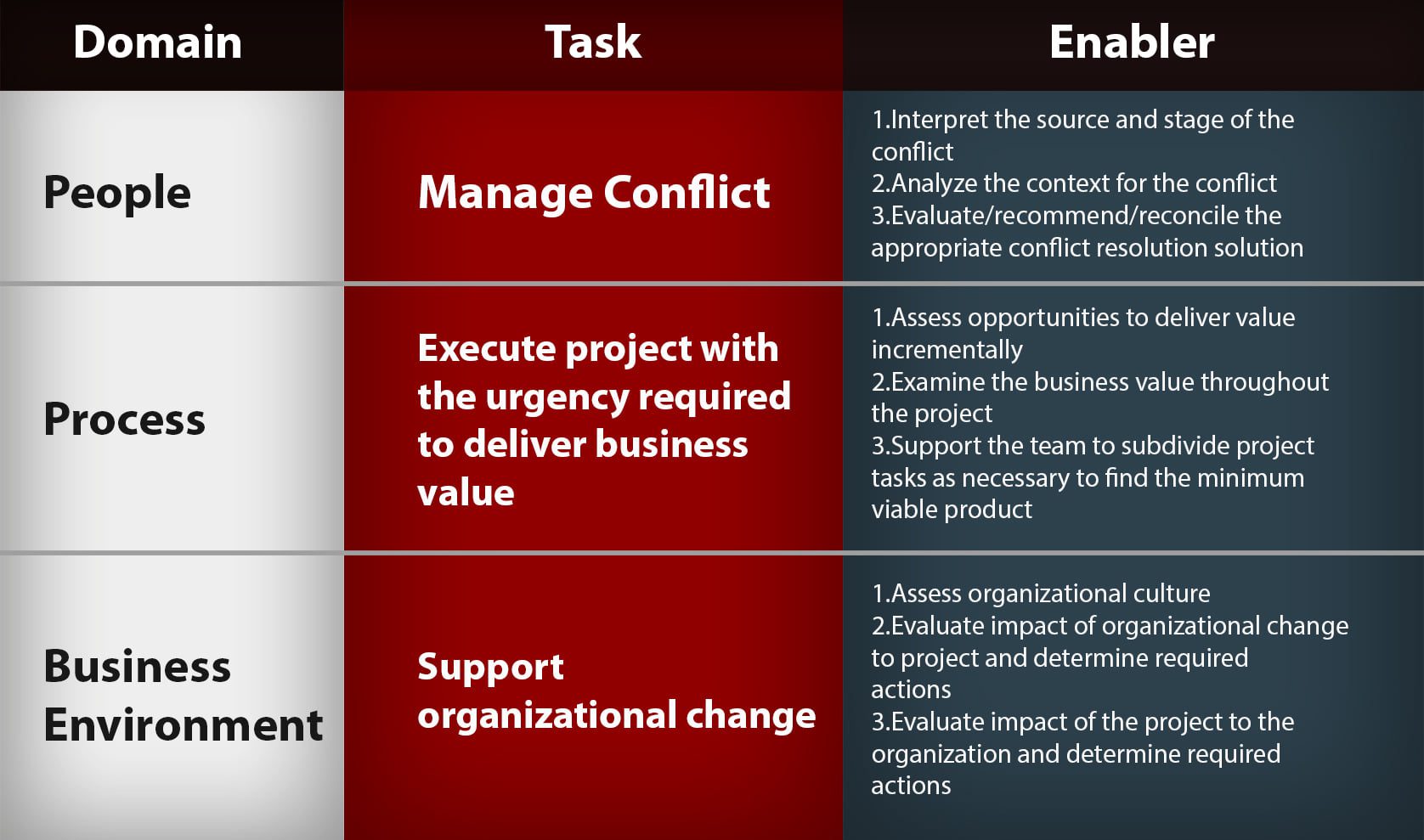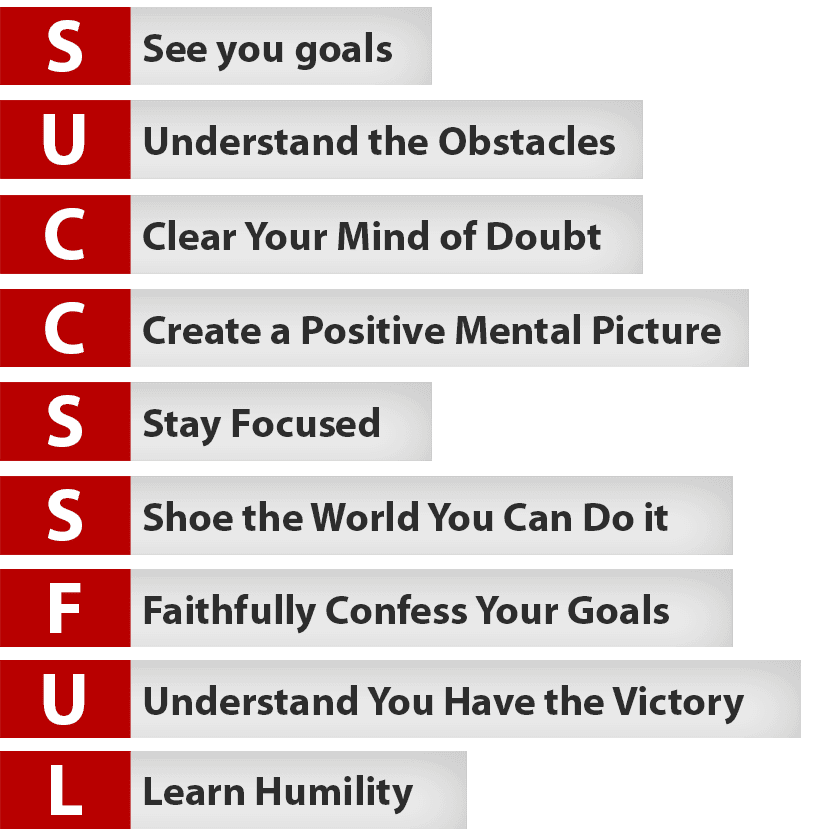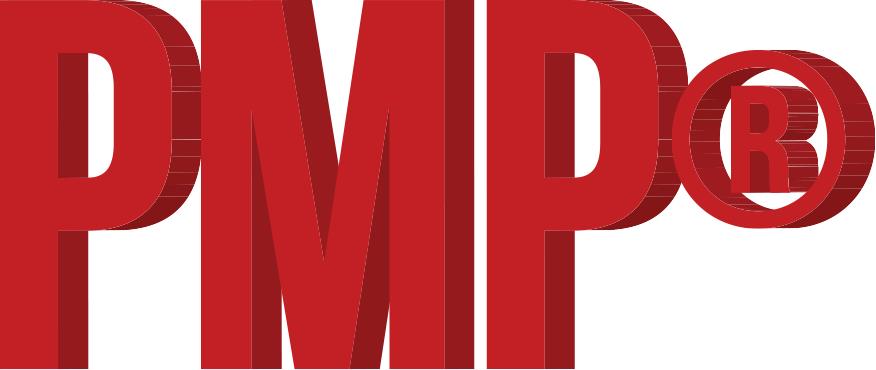




Module Description:
In today's complex business world, simply having years of project experience isn't enough to get ahead. Companies around the world are not only looking for talented, qualified candidates; they're seeking project managers with expertise and a PMP certification. Getting your ProjectManagement Professional (PMP) Certification is no easy task. It takes years of project experience,35 hours of education, and of course, you must pass the exam. And that's what this course is all about, helping you prepare for the exam.
In this course introduction, the Professor will share special acknowledgments, PMI certification information, the learning agenda for the course, the new focus of the PMP Exam, and conclude by discussing the changes and additions that appear in the PMBOK Guide Six Edition and SevenEditions.
This module aims to help the participants to pass the PMP exam. During each lecture, you will learn the PMI Project Management Body of Knowledge as we journey through the pages of the PMBOK Guide Six Edition. Your understanding of concepts will be tested. For those of you who may not be familiar with the PMP process, on the last day, the Professor will walk you through the eligibility requirements and give you tips for filling out the application. You will be shown how to handle the PMI audit and given some study tips. Finally, the Professor will share what to expect on test day and what to do after the exam.
Doing well on the PMP exam takes some hard work, and with the tips, you'll learn in this course, you'll be better positioned to do well on the exam.
During this 32-week course, you will attend a single one (1) hour online lecture per week. You will learn the new simplified exam structure. A candidate will have to master only three high-level knowledge areas of people, process, and business environment. These domains have been further divided into tasks that are nothing but the responsibilities that a project manager (PM) has to shoulder. The tasks have been broken up into enablers or work that a PM does to accomplish the task.
Here is an illustration from the pmi.org website that provides a peep into the "domain-taskenabler" relation, which in turn provides a simple role delineation approach to prepare for the exam.
Module Description:
In today's complex business world, simply having years of project experience isn't enough to get ahead. Companies around the world are not only looking for talented, qualified candidates; they're seeking project managers with expertise and a PMP certification. Getting your ProjectManagement Professional (PMP) Certification is no easy task. It takes years of project experience,35 hours of education, and of course, you must pass the exam. And that's what this course is all about, helping you prepare for the exam.
In this course introduction, the Professor will share special acknowledgments, PMI certification information, the learning agenda for the course, the new focus of the PMP Exam, and conclude by discussing the changes and additions that appear in the PMBOK Guide Six Edition and SevenEditions.
This module aims to help the participants to pass the PMP exam. During each lecture, you will learn the PMI Project Management Body of Knowledge as we journey through the pages of the PMBOK Guide Six Edition. Your understanding of concepts will be tested. For those of you who may not be familiar with the PMP process, on the last day, the Professor will walk you through the eligibility requirements and give you tips for filling out the application. You will be shown how to handle the PMI audit and given some study tips. Finally, the Professor will share what to expect on test day and what to do after the exam.
Doing well on the PMP exam takes some hard work, and with the tips, you'll learn in this course, you'll be better positioned to do well on the exam.
During this 32-week course, you will attend a single one (1) hour online lecture per week. You will learn the new simplified exam structure. A candidate will have to master only three high-level knowledge areas of people, process, and business environment. These domains have been further divided into tasks that are nothing but the responsibilities that a project manager (PM) has to shoulder. The tasks have been broken up into enablers or work that a PM does to accomplish the task.
Here is an illustration from the pmi.org website that provides a peep into the "domain-taskenabler" relation, which in turn provides a simple role delineation approach to prepare for the exam.

On the lines above,
• The people domain comprises 14 tasks and many activities thereunder.
• The process domain has 17 clearly defined tasks, divided into long lists of minor enabling work.
• The business environment domain contains four tasks that may be done by carrying out many enablers.
This detailed job task analysis provides the learning framework for an aspiring PMP certified in addition to the popular PMBOK Guide. Though the PMBOK Sixth Edition does not deal with agile and hybrid project management methods in as much detail, an AgilePractice Guide that comes with it provides an overview of agile methods for professionals used to the predictive approach.
It is expected that the PMBOK Seventh Edition, slated for release soon, will do better justice to agile, aligning it with PMI’s digital transformation strategy. So expect some radical changes.
On the lines above,
• The people domain comprises 14 tasks and many activities thereunder.
• The process domain has 17 clearly defined tasks, divided into long lists of minor enabling work.
• The business environment domain contains four tasks that may be done by carrying out many enablers.
This detailed job task analysis provides the learning framework for an aspiring PMP certified in addition to the popular PMBOK Guide. Though the PMBOK Sixth Edition does not deal with agile and hybrid project management methods in as much detail, an AgilePractice Guide that comes with it provides an overview of agile methods for professionals used to the predictive approach.
It is expected that the PMBOK Seventh Edition, slated for release soon, will do better justice to agile, aligning it with PMI’s digital transformation strategy. So expect some radical changes.
ONLINE HELP FOR PMP

Frequently Asked Questions
Why is getting certified important for a career as a project manager?
Project managers seek certifications like the CCU-PMC and PMP to prove their expertise in a competitive industry and broaden their professional horizons — gaining access to virtually any industry they want to explore worldwide. The combined CCU-PMC and PMPCertifications prove to employers that you have the credentials to plan, manage and maintain projects of any type and size.
What does this PMP course offer that others don't?
CCU's PMP training is structured as a rigorous 17 week (2 hours per week) of zero-distraction training — and it is the only course on the market that affords students the opportunity to sit their PMP exam on the fifth day of class. Studies show that adults forget about 50% of what they've learned in a class within two weeks of it ending. Since other PMP courses have an average wait time of 2-4 weeks before you can sit the exam, our training bootcamp offers the best chance you'll have at retaining PMP material. We also offer live online students an Exam Pass Guarantee so that you can focus on the learning process with zero exam stress!
What are the pre-requirements for the PMP?
Candidates must have 35 hours of specific project management education (which our program covers!). Without a Bachelor's degree, candidates must have at least five years of professional project management experience, with at least 7,500 hours spent leading and directing project tasks. With a Bachelor's degree, candidates must have at least three years of professional project management experience, with at least 4,500 hours spent leading and directing project tasks. With or without a Bachelor's, the prerequisites must be met within eight years from the time of application.
What qualifies as Project Management experience?
Project management experience must be gained across all five process groups as defined by the PMP Handbook. Click here to view the handbook's breakdown of PMP EligibilityRequirements.
How does the PMP examination process work?
The exam consists of 200 multiple-choice questions that must be completed within four hours.There is no fixed score to pass the PMP exam, as this depends on the difficulty level of the questions assigned. For example, an exam with less complicated questions might have a higher passing score, while an exam with more challenging questions might have a significantly lower passing score. You will need to pass each section of the exam in order to progress. Click here (See Introduction page 13) for more info on what to expect on the PMP exam.
What material is covered by the PMP exam?
The five domains of questions that the PMP focuses on are as follows: Initiating (13%),Planning (24%), Executing (31%), Monitoring and Controlling (25%), and Closing (7%). PMI has released an Exam Content Guide with detailed information about each domain, which you can access by clicking here (See Content Guide).
How is the PMP certification different from other comparable certifications?
Another certification comparable to the PMP is the CAPM, which PMI also offers. The main difference between these certifications is their focus. While the PMP is a more involved, upper-level certification, the CAPM is geared towards entry-level professionals.
How long is the PMP certification valid after you pass the test? What are the renewal requirements?
The PMP certification lasts for a cycle of three years, throughout which holders must earn 60PDUs (Professional Development Units) in order to renew the process when it ends.
What are some tips for preparing for the PMP?
Enrolling in a training course, like CCU's PMP Prep Course, is a great way to prepare yourself for the PMP exam. Our students have a pass rate of 93% — the highest in the industry!Other resources you can access are PMI's PMP Handbook and their PMP Exam ContentOutline. For more great tips, click here. (See pg 14)
What is the job outlook for PMP-certified professionals?
The market has a high demand for certified individuals, and earning the PMP certification opens up a world of industries for employment. Some of these industries that commonly require project managers include: construction, business, real estate, manufacturing, pharmaceuticals, information technology (IT), and so many others.
What is the average salary for PMPs?
According to a survey that polled over 30,000 project managers across 29 countries, project management practitioners' median salary was $92,000. Click here for more detailed salary data.
10 Tips for PMP Certification Exam Success
Frequently Asked Questions
Why is getting certified important for a career as a project manager?
Project managers seek certifications like the CCU-PMC and PMP to prove their expertise in a competitive industry and broaden their professional horizons — gaining access to virtually any industry they want to explore worldwide. The combined CCU-PMC and PMPCertifications prove to employers that you have the credentials to plan, manage and maintain projects of any type and size.
What does this PMP course offer that others don't?
CCU's PMP training is structured as a rigorous 17 week (2 hours per week) of zero-distraction training — and it is the only course on the market that affords students the opportunity to sit their PMP exam on the fifth day of class. Studies show that adults forget about 50% of what they've learned in a class within two weeks of it ending. Since other PMP courses have an average wait time of 2-4 weeks before you can sit the exam, our training bootcamp offers the best chance you'll have at retaining PMP material. We also offer live online students an Exam Pass Guarantee so that you can focus on the learning process with zero exam stress!
What are the pre-requirements for the PMP?
Candidates must have 35 hours of specific project management education (which our program covers!). Without a Bachelor's degree, candidates must have at least five years of professional project management experience, with at least 7,500 hours spent leading and directing project tasks. With a Bachelor's degree, candidates must have at least three years of professional project management experience, with at least 4,500 hours spent leading and directing project tasks. With or without a Bachelor's, the prerequisites must be met within eight years from the time of application.
What qualifies as Project Management experience?
Project management experience must be gained across all five process groups as defined by the PMP Handbook. Click here to view the handbook's breakdown of PMP EligibilityRequirements.
How does the PMP examination process work?
The exam consists of 200 multiple-choice questions that must be completed within four hours.There is no fixed score to pass the PMP exam, as this depends on the difficulty level of the questions assigned. For example, an exam with less complicated questions might have a higher passing score, while an exam with more challenging questions might have a significantly lower passing score. You will need to pass each section of the exam in order to progress. Click here (See Introduction page 13) for more info on what to expect on the PMP exam.
What material is covered by the PMP exam?
The five domains of questions that the PMP focuses on are as follows: Initiating (13%),Planning (24%), Executing (31%), Monitoring and Controlling (25%), and Closing (7%). PMI has released an Exam Content Guide with detailed information about each domain, which you can access by clicking here (See Content Guide).
How is the PMP certification different from other comparable certifications?
Another certification comparable to the PMP is the CAPM, which PMI also offers. The main difference between these certifications is their focus. While the PMP is a more involved, upper-level certification, the CAPM is geared towards entry-level professionals.
How long is the PMP certification valid after you pass the test? What are the renewal requirements?
The PMP certification lasts for a cycle of three years, throughout which holders must earn 60PDUs (Professional Development Units) in order to renew the process when it ends.
What are some tips for preparing for the PMP?
Enrolling in a training course, like CCU's PMP Prep Course, is a great way to prepare yourself for the PMP exam. Our students have a pass rate of 93% — the highest in the industry!Other resources you can access are PMI's PMP Handbook and their PMP Exam ContentOutline. For more great tips, click here. (See pg 14)
What is the job outlook for PMP-certified professionals?
The market has a high demand for certified individuals, and earning the PMP certification opens up a world of industries for employment. Some of these industries that commonly require project managers include: construction, business, real estate, manufacturing, pharmaceuticals, information technology (IT), and so many others.
What is the average salary for PMPs?
According to a survey that polled over 30,000 project managers across 29 countries, project management practitioners' median salary was $92,000. Click here for more detailed salary data.
10 Tips for PMP Certification Exam Success

Introduction
The Project Management Professional (PMP) certification by the Project ManagementInstitute (PMI) is a good choice for project managers in any industry. According to PMI, aPMP certification can increase your salary by an average of 20% and help your organization complete more of their projects on time, on budget and meeting original goals.
Here are 10 tips to help you achieve PMP certification success.
1. Don’t Start With the PMBOK Guide.
Begin with taking an introductory project management course like CCU’s Project Management for Breakthrough Performance and Extraordinary Results. The PMBOK Guide or PMI’s Guide to the Project Management Body of Knowledge with its plethora of new terminology is like self studying the Greek language without any assistance. The PMBOK contains a lot of new terminology that you may find difficult to understand. The sheer volume of challenging terminology, processes and the input, and techniques and the output (ITTO) makes it overwhelming to assimilate. While the PMBOK should be read, think of it more of a reference text than a study course.
2. Create Your Own Custom Study Plan
The PMP exam will test you on five domains covering a variety of different subject areas. You must make sure you have enough time to review all domains at least once; this includes not only studying, but also completing mock exams, visiting online forums and spending extra time reviewing areas that need improvement.Without adequate planning, your chance of success will drop. Creating a study plan that fits your personal needs is essential; even a simple to-do list can help a lot. For your custom study plan, you should consider factors such as:
• How soon do you intend to take the examination? Check the Prometric test center website to find a time and location that works for you (you will need your eligibility number).
• How much time can you devote to your study efforts? If you are already working, or have other commitments, make sure you can dedicate sufficient time to the basics, such as covering all exam topics, taking practice tests and reviewing exam simulations.
• How much can you spend on preparation material and training courses? Look for official, certified study materials and training to make sure you have a thorough understanding of each topic covered in the exam.
• What training method best suits you? Some people prefer self-learning, while others think there is no substitute for the classroom. Use your past learning experiences to help you pick the method to help you prepare best.
• How well acquainted are you already with the exam subjects? Even very experienced professionals, with good knowledge about the certification subjects, can have a hard time during the examination. Your personal experience can save you some studying time, but you should take into consideration factors such as the exam length and question logic. Relying too much on experience alone is a poor strategy that will likely lead to bad results.
3. Do Less Memorizing & More Understanding
The PMP exam is a practical examination that tests your application of project management concepts and theories in real life scenarios. Due to the amount of terminology in the PMP domains, many try to memorize their way to success only to discover the application nature of the examination when it’s too late. Reading to understand helps you internalize the concepts and apply lessons to real life scenarios. However, basic things like process groups, knowledge areas and standard formulas should be easily recallable by any project manager. These include schedule and cost management formulas, critical path analysis and more.
4. Get to Know Your Exam
This may sound overly simple, but your first step to success is knowing the challenge you are going to face. The PMI website will help you find basic information on the PMP certification exam. It will also provide links to a lot of useful information, such as official training providers, exam topics, practice questions and study material.The PMBOK Guide contains essential details such as an overview of the certification and the exam, including its prerequisites, how many and what type of questions you are about to face, time allotted for examination and the passing mark.It also provides detailed information on the topics covered in the examination, including the percentage of questions dedicated to each subject. This helps a lot, especially in constructing your study plan.
5. Leverage Free Exam-Prep Resources
The PMP Handbook, PMP Exam Content Outline and PMP Sample Questions are all available as free downloads on the PMI website. Use these as a starting point to evaluate your understanding of the five PMP exam domains.
6. Get Involved In an Exam Prep Course
Deciding to use a self-study-only approach may seem like a bold decision, but it may not be the best strategy. It is important to understand achieving exam success requires in-depth knowledge of several different subjects. Even if you have real-world experience, some of it may not apply since PMI’s point of view may be quite different from the tasks you are used to doing in the field.Going through CCU’s PMI PMP® and CAPM® Exam Prep Course lets you spend time with an experienced instructor, with actual knowledge on how to beat the exam. It is an excellent opportunity to get all your questions answered, share experiences and strategies, and even network if it is in-person training. This results in a greater success rate on any certification exam.
7. Take Practice Exams
No PMP candidate should approach the exam without the help of practice questions. The PMP exam contains 200 questions that must be answered in four hours – that’s less than one minute per question! This means you must be at your best, not only in terms of knowledge of the fivePMP domains, but also in terms of time management and stress control.To get started, review PMI’s PMP sample questions. Another option is InfoSec Institute’s practice test service, SkillSet.
As for practice exam test results, do not be discouraged. Unless you are an experienced test taker, it is quite common for things to go sour during the first round of questions, especially if you are not done with your reading and prep course. Take your time to study and use every resource available to clarify any doubts. By the end of your study plan, you will see consistent results on practice exams.
8. Join an Online Community
A simple Google search will find several PMP forums, wikis and personal websites where both candidates and certified professionals share their certification experiences.
As usual, it is important to verify the credibility of any source you are using. For instance, if you are looking for a formal definition of a concept that is covered in the exam, the best approach is using official material, e.g., books, guidelines and other official publications. But, if you are looking for general advice, posting your question to an online forum such as reddit or TechExams can be quite helpful.
Many candidates visit online forums and search for “PMP success.” This can serve as both preparation and motivation for the upcoming exam. If you are feeling confident, searching“PMP failure” posts may also give you some important advice, as learning from the mistakes of others is way less painful than from your own.
A word of advice: Unless you have time to help others, stay away from toxic people and posts.Many unfortunate exam takers go online to vent their frustration and this can be discouraging.
9. Have an Exam-Day Preparation Plan
Address these three basic items at least a week in advance of your exam:
• Is your exam kit ready? Check the PMP Handbook to make sure you have everything you need for the day of your PMP exam. This may sound silly, but some candidates fail to even attend the test for not fulfilling basic requirements like bringing adequate identification. Call your testing center to verify you understand the requirements.
• Are you calm and well rested? Many candidates fail because of physical and mental exhaustion. Staying up late doing a final round of study may sound tempting, but last-minute reading is usually not a good thing, and may even leave you anxious. If you think it is important to do a final review, do a selective reading instead. Also, do not focus solely on weaknesses. If you have not mastered a specific topic until now, you may prefer to focus on enhancing the areas where you’re good. A great tool for selective reading is using summaries or glossaries, which have lots of important information, some of which you may have missed during your study sessions.
• Did you make the necessary arrangements to be on time at the test site? Candidates may not be admitted to the site if they are late. If you are using public transportation, double check the best routes; if you are driving to the exam site, make sure you know where to park beforehand.
10. Focus on being S.U.C.C.E.S.S.F.U.L.™
Introduction
The Project Management Professional (PMP) certification by the Project ManagementInstitute (PMI) is a good choice for project managers in any industry. According to PMI, aPMP certification can increase your salary by an average of 20% and help your organization complete more of their projects on time, on budget and meeting original goals.
Here are 10 tips to help you achieve PMP certification success.
1. Don’t Start With the PMBOK Guide.
Begin with taking an introductory project management course like CCU’s Project Management for Breakthrough Performance and Extraordinary Results. The PMBOK Guide or PMI’s Guide to the Project Management Body of Knowledge with its plethora of new terminology is like self studying the Greek language without any assistance. The PMBOK contains a lot of new terminology that you may find difficult to understand. The sheer volume of challenging terminology, processes and the input, and techniques and the output (ITTO) makes it overwhelming to assimilate. While the PMBOK should be read, think of it more of a reference text than a study course.
2. Create Your Own Custom Study Plan
The PMP exam will test you on five domains covering a variety of different subject areas. You must make sure you have enough time to review all domains at least once; this includes not only studying, but also completing mock exams, visiting online forums and spending extra time reviewing areas that need improvement.Without adequate planning, your chance of success will drop. Creating a study plan that fits your personal needs is essential; even a simple to-do list can help a lot. For your custom study plan, you should consider factors such as:
• How soon do you intend to take the examination? Check the Prometric test center website to find a time and location that works for you (you will need your eligibility number).
• How much time can you devote to your study efforts? If you are already working, or have other commitments, make sure you can dedicate sufficient time to the basics, such as covering all exam topics, taking practice tests and reviewing exam simulations.
• How much can you spend on preparation material and training courses? Look for official, certified study materials and training to make sure you have a thorough understanding of each topic covered in the exam.
• What training method best suits you? Some people prefer self-learning, while others think there is no substitute for the classroom. Use your past learning experiences to help you pick the method to help you prepare best.
• How well acquainted are you already with the exam subjects? Even very experienced professionals, with good knowledge about the certification subjects, can have a hard time during the examination. Your personal experience can save you some studying time, but you should take into consideration factors such as the exam length and question logic. Relying too much on experience alone is a poor strategy that will likely lead to bad results.
3. Do Less Memorizing & More Understanding
The PMP exam is a practical examination that tests your application of project management concepts and theories in real life scenarios. Due to the amount of terminology in the PMP domains, many try to memorize their way to success only to discover the application nature of the examination when it’s too late. Reading to understand helps you internalize the concepts and apply lessons to real life scenarios. However, basic things like process groups, knowledge areas and standard formulas should be easily recallable by any project manager. These include schedule and cost management formulas, critical path analysis and more.
4. Get to Know Your Exam
This may sound overly simple, but your first step to success is knowing the challenge you are going to face. The PMI website will help you find basic information on the PMP certification exam. It will also provide links to a lot of useful information, such as official training providers, exam topics, practice questions and study material.The PMBOK Guide contains essential details such as an overview of the certification and the exam, including its prerequisites, how many and what type of questions you are about to face, time allotted for examination and the passing mark.It also provides detailed information on the topics covered in the examination, including the percentage of questions dedicated to each subject. This helps a lot, especially in constructing your study plan.
5. Leverage Free Exam-Prep Resources
The PMP Handbook, PMP Exam Content Outline and PMP Sample Questions are all available as free downloads on the PMI website. Use these as a starting point to evaluate your understanding of the five PMP exam domains.
6. Get Involved In an Exam Prep Course
Deciding to use a self-study-only approach may seem like a bold decision, but it may not be the best strategy. It is important to understand achieving exam success requires in-depth knowledge of several different subjects. Even if you have real-world experience, some of it may not apply since PMI’s point of view may be quite different from the tasks you are used to doing in the field.Going through CCU’s PMI PMP® and CAPM® Exam Prep Course lets you spend time with an experienced instructor, with actual knowledge on how to beat the exam. It is an excellent opportunity to get all your questions answered, share experiences and strategies, and even network if it is in-person training. This results in a greater success rate on any certification exam.
7. Take Practice Exams
No PMP candidate should approach the exam without the help of practice questions. The PMP exam contains 200 questions that must be answered in four hours – that’s less than one minute per question! This means you must be at your best, not only in terms of knowledge of the fivePMP domains, but also in terms of time management and stress control.To get started, review PMI’s PMP sample questions. Another option is InfoSec Institute’s practice test service, SkillSet.
As for practice exam test results, do not be discouraged. Unless you are an experienced test taker, it is quite common for things to go sour during the first round of questions, especially if you are not done with your reading and prep course. Take your time to study and use every resource available to clarify any doubts. By the end of your study plan, you will see consistent results on practice exams.
8. Join an Online Community
A simple Google search will find several PMP forums, wikis and personal websites where both candidates and certified professionals share their certification experiences.
As usual, it is important to verify the credibility of any source you are using. For instance, if you are looking for a formal definition of a concept that is covered in the exam, the best approach is using official material, e.g., books, guidelines and other official publications. But, if you are looking for general advice, posting your question to an online forum such as reddit or TechExams can be quite helpful.
Many candidates visit online forums and search for “PMP success.” This can serve as both preparation and motivation for the upcoming exam. If you are feeling confident, searching“PMP failure” posts may also give you some important advice, as learning from the mistakes of others is way less painful than from your own.
A word of advice: Unless you have time to help others, stay away from toxic people and posts.Many unfortunate exam takers go online to vent their frustration and this can be discouraging.
9. Have an Exam-Day Preparation Plan
Address these three basic items at least a week in advance of your exam:
• Is your exam kit ready? Check the PMP Handbook to make sure you have everything you need for the day of your PMP exam. This may sound silly, but some candidates fail to even attend the test for not fulfilling basic requirements like bringing adequate identification. Call your testing center to verify you understand the requirements.
• Are you calm and well rested? Many candidates fail because of physical and mental exhaustion. Staying up late doing a final round of study may sound tempting, but last-minute reading is usually not a good thing, and may even leave you anxious. If you think it is important to do a final review, do a selective reading instead. Also, do not focus solely on weaknesses. If you have not mastered a specific topic until now, you may prefer to focus on enhancing the areas where you’re good. A great tool for selective reading is using summaries or glossaries, which have lots of important information, some of which you may have missed during your study sessions.
• Did you make the necessary arrangements to be on time at the test site? Candidates may not be admitted to the site if they are late. If you are using public transportation, double check the best routes; if you are driving to the exam site, make sure you know where to park beforehand.
10. Focus on being S.U.C.C.E.S.S.F.U.L.™

PMP Exam Overview: What To Expect
Introduction
Interested in boosting your career potential? The project management professional (PMP)credential from the Project Management Institute (PMI) can give you the leg up you want. This certification shows you have the knowledge necessary to manage projects of all sizes and scopes, to determine where breakdowns in processes might be occurring, test for corrections, apply fixes and then monitor the situation.According to PMI, “The project management professional (PMP) is the most important industry-recognized certification for project managers. You can find PMPs leading projects in nearly every country and, unlike other certifications that focus on a particular geography or domain, the PMP is truly global.”
Interested in boosting your career potential? The project management professional (PMP)credential from the Project Management Institute (PMI) can give you the leg up you want. This certification shows you have the knowledge necessary to manage projects of all sizes and scopes, to determine where breakdowns in processes might be occurring, test for corrections, apply fixes and then monitor the situation.According to PMI, “The project management professional (PMP) is the most important industry-recognized certification for project managers. You can find PMPs leading projects in nearly every country and, unlike other certifications that focus on a particular geography or domain, the PMP is truly global.”

What Is the Goal of the PMP Exam?
The goal of the PMP exam is to prove that you have the knowledge, skills and experience to address project-management related issues, plan projects and handle virtually any breakdown or variance encountered during a project. While the PMP credential is not the only project management-related credential available, it is one of the few that is completely geography neutral. This means that PMP-credentialed professionals can work in any industry in any nation on the planet.
PMI explains, “The PMP can also provide a significant advantage when it comes to salary and earning potential. Among survey respondents to PMI’s Earning Power Salary Survey, those with a PMP certification garnered a higher salary (20% higher on average) than those without aPMP certification.”
Requirements for Taking the PMP Exam
Before you can take the PMP exam, you need to ensure that you meet the requirements. You’ll find that they’re a bit more stringent than other certification options available. If you have a four-year degree, you’ll need at least three years of experience in project management, as well as 4,500 hours of experience leading and/or directing projects.You’ll also need 35 hours of project management education. If you have only a secondary degree, you’ll need five years of experience in project management, 7,500 hours of leading and/or directing projects and 35 hours of project management education.You’ll usually need to wait three to five business days for your official approval from PMI before you can schedule your PMP exam.Note that if you meet eligibility requirements, you’ll need to apply to take the exam. Some applications are flagged for auditing. If this is the case, be prepared to provide further documentation about your experience and education. Once you have been approved, you will need to take the PMP exam and, after you’ve passed it, you will need to earn 60 professional development units within a three-year period in order to guarantee that you can renew your certification when it expires (PMP certification is good for three years at a time).
What Is the Goal of the PMP Exam?
The goal of the PMP exam is to prove that you have the knowledge, skills and experience to address project-management related issues, plan projects and handle virtually any breakdown or variance encountered during a project. While the PMP credential is not the only project management-related credential available, it is one of the few that is completely geography neutral. This means that PMP-credentialed professionals can work in any industry in any nation on the planet.
PMI explains, “The PMP can also provide a significant advantage when it comes to salary and earning potential. Among survey respondents to PMI’s Earning Power Salary Survey, those with a PMP certification garnered a higher salary (20% higher on average) than those without aPMP certification.”
Requirements for Taking the PMP Exam
Before you can take the PMP exam, you need to ensure that you meet the requirements. You’ll find that they’re a bit more stringent than other certification options available. If you have a four-year degree, you’ll need at least three years of experience in project management, as well as 4,500 hours of experience leading and/or directing projects.You’ll also need 35 hours of project management education. If you have only a secondary degree, you’ll need five years of experience in project management, 7,500 hours of leading and/or directing projects and 35 hours of project management education.You’ll usually need to wait three to five business days for your official approval from PMI before you can schedule your PMP exam.Note that if you meet eligibility requirements, you’ll need to apply to take the exam. Some applications are flagged for auditing. If this is the case, be prepared to provide further documentation about your experience and education. Once you have been approved, you will need to take the PMP exam and, after you’ve passed it, you will need to earn 60 professional development units within a three-year period in order to guarantee that you can renew your certification when it expires (PMP certification is good for three years at a time).
What Is the PMP Exam Schedule, Duration & Format?
The PMP exam includes 200 questions, all of which are multiple-choice. You have four hours to complete all 200 questions. Note there are five groups of questions within the overall exam that mirror the focus areas of the test. These are:
• Initiation (13%)
• Planning (24%)
• Executing (30%)
• Monitoring and controlling (25%)
• Closing (8%)
Unlike other exams, you must pass each section in order to pass the overall exam. You will be informed immediately on completing each section whether it was passed or not. Below, you’ll find sample questions similar to those you will find on the PMP exam. While these are provided by PMI, they are not taken from the actual exam itself.
1. An accepted deadline for a project approaches. However, the project manager realizes only 75% percent of the work has been completed. The project manager the nissues a change request. What should the change request authorize?
1. Additional resources using the contingency fund
2. Escalation approval to use contingency funding
3. Team overtime to meet schedule
4. Corrective action based on causes
5. The project manager develops a process improvement plan to encourage continuous process improvement during the life of the project. Which of the following is a valid tool or technique to help the project manager ensure the success of the process improvement plan?
6. Change control system
7. Process analysis
8. Benchmarking
9. Configuration management system
10. The project manager meets with the project team to review lessons learned from previous projects. In what activity is the team involved?
11. Performance management
12. Scope identification
13. Risk identification
14. Project team status meeting

What Is the PMP Exam Schedule, Duration & Format?
The PMP exam includes 200 questions, all of which are multiple-choice. You have four hours to complete all 200 questions. Note there are five groups of questions within the overall exam that mirror the focus areas of the test. These are:
• Initiation (13%)
• Planning (24%)
• Executing (30%)
• Monitoring and controlling (25%)
• Closing (8%)
Unlike other exams, you must pass each section in order to pass the overall exam. You will be informed immediately on completing each section whether it was passed or not. Below, you’ll find sample questions similar to those you will find on the PMP exam. While these are provided by PMI, they are not taken from the actual exam itself.
1. An accepted deadline for a project approaches. However, the project manager realizes only 75% percent of the work has been completed. The project manager the nissues a change request. What should the change request authorize?
1. Additional resources using the contingency fund
2. Escalation approval to use contingency funding
3. Team overtime to meet schedule
4. Corrective action based on causes
5. The project manager develops a process improvement plan to encourage continuous process improvement during the life of the project. Which of the following is a valid tool or technique to help the project manager ensure the success of the process improvement plan?
6. Change control system
7. Process analysis
8. Benchmarking
9. Configuration management system
10. The project manager meets with the project team to review lessons learned from previous projects. In what activity is the team involved?
11. Performance management
12. Scope identification
13. Risk identification
14. Project team status meeting

Scheduling & Taking the PMP Exam
The only place you can take the PMP exam is through a Prometric testing center. You will need to consult Prometric’s website to determine which center is closest to your geographic location. Before you attempt to schedule your exam, make sure you have your testing code – it should be provided to you by PMI after your application is approved and you have paid the relevant fees.
The exam itself is computerized. However, accommodations can be made for those who require paper-based tests. You can learn more about locating paper-based testing events in your area here.
It’s important to note that, after your application is approved, you are eligible to take the PMP exam within one year. After that point, you’ll need to go through the approval and application process once more. You are also allowed to take the exam up to three times during that year.
What Are the Identification Requirements for Testing?
When you arrive at the testing center, you’ll need to provide the staff with at least two valid forms of identification. The following ID options are acceptable:
• A valid state-issued driver’s license
• A valid state-issued ID card
• A valid military ID
• A valid passport
• A valid green card or resident card
Your Social Security card may be used as a secondary form of ID, but must be accompanied by a primary ID type with a picture. Also, understand any ID that has expired will be considered invalid.
What’s the Arrival Process Like?
The arrival process at Prometric is similar to other testing centers, e.g., Pearson VUE. When you arrive, you’ll need to provide your identification to the staff before you’re allowed into the center.
Once you enter the testing area itself, you are not allowed to have any electronic devices, recording devices, etc. This includes smartphones and tablets. Your test will be taken on a computer workstation, unless you previously arranged to attend a paper-based testing event.You’re not allowed to have purses, bags, briefcases or other baggage/luggage with you in the testing area.
Scheduling & Taking the PMP Exam
The only place you can take the PMP exam is through a Prometric testing center. You will need to consult Prometric’s website to determine which center is closest to your geographic location. Before you attempt to schedule your exam, make sure you have your testing code – it should be provided to you by PMI after your application is approved and you have paid the relevant fees.
The exam itself is computerized. However, accommodations can be made for those who require paper-based tests. You can learn more about locating paper-based testing events in your area here.
It’s important to note that, after your application is approved, you are eligible to take the PMP exam within one year. After that point, you’ll need to go through the approval and application process once more. You are also allowed to take the exam up to three times during that year.
What Are the Identification Requirements for Testing?
When you arrive at the testing center, you’ll need to provide the staff with at least two valid forms of identification. The following ID options are acceptable:
• A valid state-issued driver’s license
• A valid state-issued ID card
• A valid military ID
• A valid passport
• A valid green card or resident card
Your Social Security card may be used as a secondary form of ID, but must be accompanied by a primary ID type with a picture. Also, understand any ID that has expired will be considered invalid.
What’s the Arrival Process Like?
The arrival process at Prometric is similar to other testing centers, e.g., Pearson VUE. When you arrive, you’ll need to provide your identification to the staff before you’re allowed into the center.
Once you enter the testing area itself, you are not allowed to have any electronic devices, recording devices, etc. This includes smartphones and tablets. Your test will be taken on a computer workstation, unless you previously arranged to attend a paper-based testing event.You’re not allowed to have purses, bags, briefcases or other baggage/luggage with you in the testing area.
What Are the Policies on Rescheduling, Late Arrivals & Cancelation?
If you are more than a few minutes late for the PMP exam, you will be counted as a no-show and will have to reschedule to take your test at a later date. You will also forfeit your entire registration fee.If you need to reschedule your exam, it will cost you $70 if done within 30 days of the testing event. Cancellation of your test within 30 days of the testing event also incurs a$70 charge. Note that any cancellation or rescheduling within 48 hours or less of the event with incur a forfeiture of your registration fee.
When to Schedule Your PMP Exam
Prometrics hosts regular testing sessions, although you will need to locate the closest center to your physical location and then view their testing/exam schedule. In some instances, same-day testing may be possible, depending on class size. Make sure you have your PMI testing code before attempting to schedule your exam. It may take up to seven calendar days to receive your approval/testing code after applying.
What Are the Policies on Rescheduling, Late Arrivals & Cancelation?
If you are more than a few minutes late for the PMP exam, you will be counted as a no-show and will have to reschedule to take your test at a later date. You will also forfeit your entire registration fee.If you need to reschedule your exam, it will cost you $70 if done within 30 days of the testing event. Cancellation of your test within 30 days of the testing event also incurs a$70 charge. Note that any cancellation or rescheduling within 48 hours or less of the event with incur a forfeiture of your registration fee.
When to Schedule Your PMP Exam
Prometrics hosts regular testing sessions, although you will need to locate the closest center to your physical location and then view their testing/exam schedule. In some instances, same-day testing may be possible, depending on class size. Make sure you have your PMI testing code before attempting to schedule your exam. It may take up to seven calendar days to receive your approval/testing code after applying.

What to Do If You Fail the Exam
The PMP exam is a relatively exhaustive test with a strict deadline. You have only 1.2 minutes per question, and each section of the exam must be passed in order to pass the overall exam.You are given three opportunities to retest during the one-year approval period for this reason.You will also need to pay a “retake” fee, on top of your original testing/exam fee. This fee is$275 if you’re a member of PMI. If you’re not a member, you’ll need to pay $375.
What Does It Cost to Take the PMP Exam?
The cost of the PMP exam depends on whether or not you’re a member of PMI. If you are a member, you’ll pay $405 to take the test. If you’re not a member, it w pay $375.ill cost $555. This cost does not include any retakes of the exam if you fail. That will incur an additional cost, and you are allowed up to three retests per approval year.
What Does It Take to Pass the PMP Exam?
In order to pass the PMP exam, you’ll need to pass all sections of the test. There are 200questions total, all of which are multiple-choice. Of those 200 questions, 25 are not scored, and 175 are scored – the scored/un scored questions are mixed throughout the exam.According to past information from PMI, you must score at least 61% to 65% overall in order to pass the PMP exam. However, PMI uses a sliding scale to determine whether you pass or fail based on the difficulty of the questions that you answered correctly/incorrectly. For this reason, most aspiring PMP certification holders spend at least 35 hours in preparation prior to taking the exam.
Conclusion
The PMP credential can help you stand out in an increasingly competitive professional world. It proves to employers you have what it takes to correctly plan, manage, maintain and adjust projects of virtually any scope or size, in any industry, within any nation on the planet.Preparation is essential for passing the PMP exam. It’s exhaustive and the scoring method means that there’s more than a little ambiguity about whether you’ll pass or not. The best defense is to ensure that you’re fully prepared. InfoSec Institute’s PMP Boot Camp will give you the background you need for certification success, and our PMP exam prep solution, Skillset, offers thousands of free practice questions for the exam.Skillset gives you ultimate control over your studies by creating custom tests via the test builder. Questions are further subdivided into difficulty levels: beginner, intermediate and expert. While you practice, Skillset uses an algorithm to determine when you are actually ready to sit for the exam. How would you like to not guess, but KNOW when you are ready to sit for an exam? The best part of all is that it’s completely free!Check out the PMP practice questions here.
Sources:
https://www.pmi.org/certifications/types/project-management-pmp
https://www.pmi.org/certifications/types/project-management-pmp/exam-prep
https://www.4pmti.com/PMP-Certification-Requirements.aspx
https://www.prometric.com/en-us/clients/pmi/Pages/landing.aspx
END OF ONLINE HELP FOR PM

Cambridge Corporate University
Seeburgstrasse 20, 6006 Lucerne
Switzerland

Site Map Jobs Policies Trademarks Investors relations contact us Copyright
All rights reserved © 2021 By the President & Fellows of the Cambridge Corporate University
What to Do If You Fail the Exam
The PMP exam is a relatively exhaustive test with a strict deadline. You have only 1.2 minutes per question, and each section of the exam must be passed in order to pass the overall exam.You are given three opportunities to retest during the one-year approval period for this reason.You will also need to pay a “retake” fee, on top of your original testing/exam fee. This fee is$275 if you’re a member of PMI. If you’re not a member, you’ll need to pay $375.
What Does It Cost to Take the PMP Exam?
The cost of the PMP exam depends on whether or not you’re a member of PMI. If you are a member, you’ll pay $405 to take the test. If you’re not a member, it w pay $375.ill cost $555. This cost does not include any retakes of the exam if you fail. That will incur an additional cost, and you are allowed up to three retests per approval year.
What Does It Take to Pass the PMP Exam?
In order to pass the PMP exam, you’ll need to pass all sections of the test. There are 200questions total, all of which are multiple-choice. Of those 200 questions, 25 are not scored, and 175 are scored – the scored/un scored questions are mixed throughout the exam.According to past information from PMI, you must score at least 61% to 65% overall in order to pass the PMP exam. However, PMI uses a sliding scale to determine whether you pass or fail based on the difficulty of the questions that you answered correctly/incorrectly. For this reason, most aspiring PMP certification holders spend at least 35 hours in preparation prior to taking the exam.
Conclusion
The PMP credential can help you stand out in an increasingly competitive professional world. It proves to employers you have what it takes to correctly plan, manage, maintain and adjust projects of virtually any scope or size, in any industry, within any nation on the planet.Preparation is essential for passing the PMP exam. It’s exhaustive and the scoring method means that there’s more than a little ambiguity about whether you’ll pass or not. The best defense is to ensure that you’re fully prepared. InfoSec Institute’s PMP Boot Camp will give you the background you need for certification success, and our PMP exam prep solution, Skillset, offers thousands of free practice questions for the exam.Skillset gives you ultimate control over your studies by creating custom tests via the test builder. Questions are further subdivided into difficulty levels: beginner, intermediate and expert. While you practice, Skillset uses an algorithm to determine when you are actually ready to sit for the exam. How would you like to not guess, but KNOW when you are ready to sit for an exam? The best part of all is that it’s completely free!Check out the PMP practice questions here.
Sources:
https://www.pmi.org/certif....
https://www.4pmti.com/PMP-Certification-Requirements.aspx
https://www.prometric.com/en-us/clients/pmi/Pages/landing.aspx
END OF ONLINE HELP FOR PM